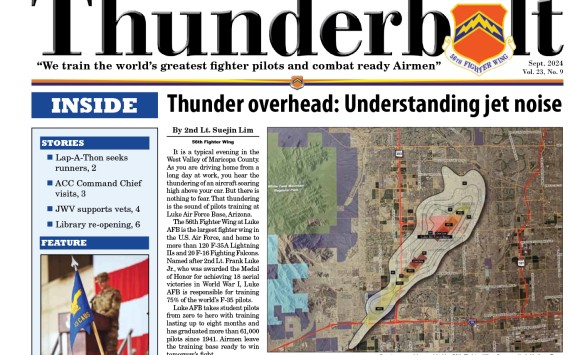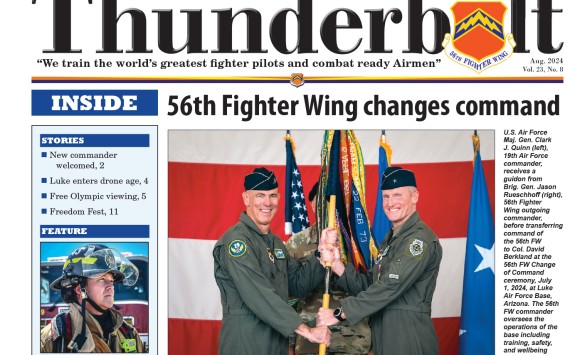I was a young second lieutenant and my supervisor surprised me by asking, “Are you a team player?” on my mid-term feedback. I was mad.
Things had come to a head between us after I had complained about being forced to “volunteer” at a unit fundraiser in September — by far contracting’s busiest month. Really, the issue had been brewing for a while. She had been pushing me to be more of a team player by helping out my colleagues and taking on additional duties within the squadron. My viewpoint was that by showing up every day and doing my job to the best of my abilities, I was helping the team and was, therefore, already a team player. There was no need to do those other things that would just cut into my free time.
In my defense, my approach had worked up to that point. I had graduated from the U.S. Air Force Academy, had won every possible award during Air and Space Basic Course (the first officer professional military education course at the time), had been stratified No. 1 out of the trainees in our contracting squadron, and was on the cusp of winning a squadron annual award. So I thought her marking down my leadership skills because I didn’t “foster teamwork” and then including that comment about me not being a team player was unfair, and I was fired up.
The problem was her comment was spot-on.
My daily focus had been to do my best so I could win awards and earn stratifications in order to get the right assignments and advance my career. My supervisor was right. I wasn’t a team player, and as much as I was in denial at the time, it was exactly what I needed to hear. It was, perhaps, the single most honest piece of feedback I have ever received.
After I completed in-residence graduate school, I was assigned my dream job at the Airborne Laser System Program Office. But again, I thought there was a problem. I was assigned to a team doing tertiary research and development work that was only indirectly related to the overall program. I was frustrated and itching for an opportunity to move down the hall and get my shot at the big time. Fortunately, my day came, and I joined the contracting team that managed the main contracts to design, build, and test the airborne laser.
When I joined the team, I became one of many lieutenants and captains working in the various functional divisions. My initial attempts to get personal recognition were unsuccessful and I eventually gave up trying.
Fortunately, our program had entered an exciting time. We were marching through our flight test program en route to “shoot down” where we would use our massive flying laser to shoot missiles out of the sky with a beam of light. I immersed myself in the program and focused on being the best contracting officer I could be and routinely went above and beyond my primary duties to help the program in any way I could. The hours were long and the stress was, at times, almost unbearable, but I was having the time of my life. For the first time in my career, it wasn’t about me. It was about the team. It was about being part of something bigger than me, and in this case, something historic. There was nowhere else I’d have rather been.
After we destroyed a boosting ballistic missile in 2010, the folks in our office were ecstatic. We had overcome tremendous adversity and had accomplished what many considered to be impossible. We were on top of the world, and it only got better a few months later when the Air Force Association awarded us the Theodore von Karman Award for the most outstanding contribution in the field of science and engineering. It was one of the proudest accomplishments of my life and I suspect one of the few that I’ll relay to my daughter and any future grandchildren long after my career is over.
But it came at a price. I made a lot of personal sacrifices during that time. I spent countless hours away from my wife and young daughter while I worked late nights and weekends in the office so I could help better the team, contribute to the big picture, and help provide a new and exciting technology to the Air Force. There were days I wanted to quit, but I continued because so many of my teammates were sacrificing as well. We had come together as one and were able to accomplish something truly great — something so much bigger and more important than we ever could have accomplished on our own.
Being part of such a great team rejuvenated my desire to serve in the Air Force and in the years since, I’ve had the fortune to serve with several more amazing folks and to have been a part of other great teams.
But, in the end, I think it’s our own attitude that makes the biggest difference in our careers. Being a team player and sacrificing for what we want is hard. There’s no getting around that, and there are times we just don’t want to do it. However, when we sacrifice for the betterment of the team, it makes the team stronger, more able to achieve the big picture and to positively affect the Air Force in ways we often cannot even imagine at the time.
Although it took me too long, I eventually learned the lesson my supervisor tried to teach me at the onset of my career, and I have found that being a team player has made my career much more enjoyable and more fulfilling than I ever thought it could be.











